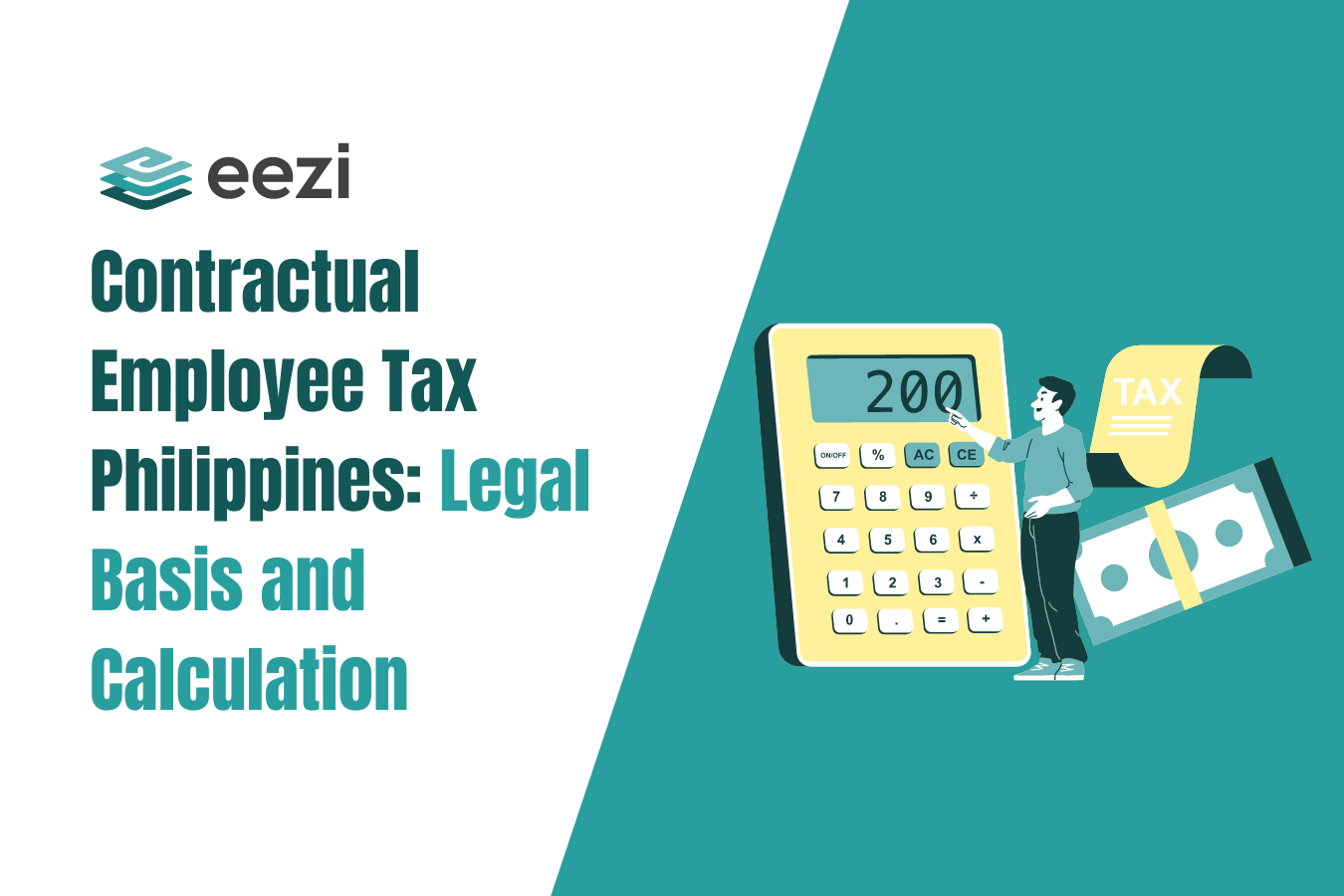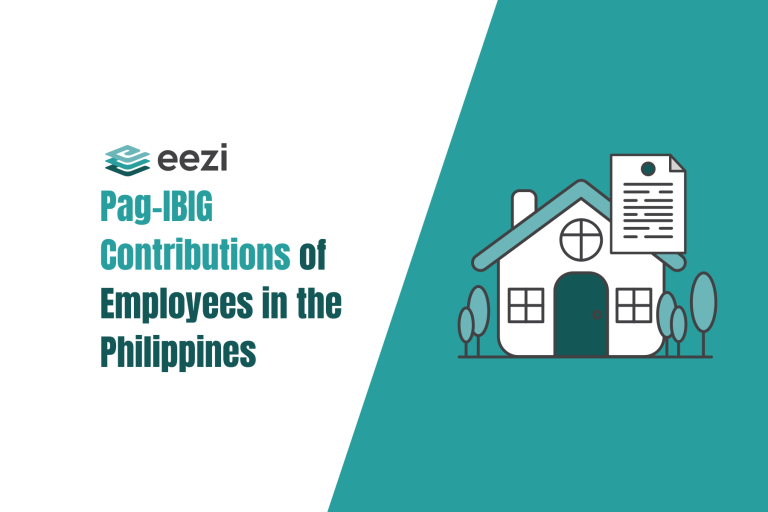What are the rules on contractual employee tax in the Philippines? Furthermore, what is its legal basis and computation?

One thing to remember when holding a business or working in the Philippines is that income taxes are inevitable. No employed individual is exempted from this responsibility.
If someone earns from legal employment, they must pay income tax. It does not matter whether they are working full-time or part-time. Furthermore, they are subject to withholding tax. Self-employed people must also register with the Bureau of Internal Revenue and be subject to bookkeeping.
How are contractual employees taxed in the Philippines?
There is another specific question, though. What if one is a contractual employee? Must they also comply with Philippine tax legislation?
The answer is yes.
The contractual employee
First, it is important to know what a contractual employee is in the Philippines. They are also called independent contractors, contract workers, or freelancers, and in some cases, they are also called work-for-hire.
Contractualization is a work arrangement in the Philippines where workers are hired for a limited period. Usually, this is without the security of tenure, monetary, social protection, and other benefits.

Contractual employee vs. permanent employees
What is the difference between contractual and permanent employees in the Philippines?
Permanent
- Typically eligible for benefits
- Work in office settings with supplies and equipment
- Have a set workday schedule
- Paid based on hours worked
- Enjoy paid time off (e.g. holidays, vacations, sick leaves)
Contractual
- Not eligible for benefits. They have to take care of their own insurance
- Work from home usually and provide their own supplies and equipment
- May have a more flexible schedule
- Paid by work hours, output, or upon agreement
- No paid time off
Related: Rules on Labor-Only Contracting in the Philippines
What is the system for contractual work in the Philippines?
Usually, contracts only require a maximum of five months of work. Reaching six months means they get considered for a regular position following an evaluation. That also means they may soon enjoy the benefits that regular workers have, such as paid leaves, medical insurance, and security of tenure, as mandated by law. Some companies cannot afford that, hence the contractualization.
What is the legal basis for contractual work in the Philippines?
Article 296 in the Philippines is a provision in the Labor Code that pertains to probationary employment. The provision limits employment to six months from the start of the contract unless an amending apprenticeship agreement stipulates otherwise.
Though not under the same laws, contractual employees can still be terminated for just cause before the end of their contract.
Labor-only contracting or subcontracting is not allowed. However, hiring a contractual employee is still possible, according to the Supreme Court. The criteria is that is must not be an obvious attempt to avoid the law regarding the security of tenure.
Requirements for contract hiring
- Both parties, employer and contract employee, voluntarily agreed on the fixed period of employment.
- No party exercised force or dominance over the other in making the deal.
Considering what has been said earlier, what benefits do contract employees have? Are there any?
The benefits of contractual work
Contract workers have rights as well. Therefore, there are certain benefits that they can also enjoy.
Social Security Services (SSS)
They are covered by the SSS Law or Republic Act [RA] No. 11199 (Social Security Act of 2018), in which:
“…any benefit already earned by the employees under private benefit plans existing at the time of the approval of this Act shall not be discontinued, reduced or otherwise impaired.”
– ralblaw.com
However, there are certain exceptions. Should a freelancer fall under any of them, they are a self-employed professional.
Additionally, there are automatic monthly SSS contributions from their salary. As a result, they will have access to the various SSS benefits and loan privileges.
13th Month Pay
Under the Labor Code, any contractual worker, regardless of type (deployed or assigned), should enjoy a 13th-month pay. The Department of Labor and Employment (DOLE) Department Order No. 18-A makes it possible for them to enjoy employee rights and privileges.
Related: 13th-month Pay Rules in the Philippines
Separation Pay
Freelancers do not get separation pay by default in general. Suppose your contract expires as a contractual worker. In that case, you cannot expect to receive separation pay.
However, the termination of employment prior to contract expiration is a dismissal. In this case, the dismissal gives them the right to claim their separation pay.
Without proper cause for termination, they must not be removed from employment. Until the contract is over, they are still a regular employee. Wrongful termination is illegal dismissal.
The contractor and withholding taxes
Contractual workers are considered employed. Anyone who is employed is subject to withholding taxes. A freelancer, therefore, is subject to it as well.
What are withholding taxes?
Taxpayers engaged in trade or business activities in the Philippines have the corporate tax obligation of paying withholding taxes. Every month, employers actively withhold a portion of their employees’ salaries, which serves as an advanced payment for their income taxes during the business year.
Contractors are employees, which means they are taxpayers. As such, they must follow the tax laws.
How to calculate contractual income tax withheld
Income tax in the Philippines may range from 5% to 32%. However, if you earn less than Php 250,000 annually, you are exempt from withholding tax.
Take note of your percentage tax:
| Gross Income | Tax Rate |
|---|---|
| Php 0 – Php 10,000 | 5% |
| Php 10,000 – Php 30,000 | 10% |
| Php 30,000 – Php 70,000 | 15% |
| Php 70,000 – Php 140,000 | 20% |
| Php 140,000 – Php 250,000 | 25% |
| Php 250,000 – Php 500,000 | 30% |
| Php 500,000 and above | 32% |
Related: Guidelines for Withholding Taxes in the Philippines
How is tax calculated on contract work?
- Calculate your regular take-home pay.
- Next, subtract these contributions: SSS, PhilHealth, and Pag-IBIG.
- After that, get your monthly taxable income. Multiply the amount from step 1 by 12 (months).
- Refer to BIR’s withholding tax table to check your tax withheld bracket:

If you earn less than PhP250,000 annually, you are exempt from paying taxes. Suppose you earn more than PhP3,000,000. In that case, you must pay a 12% value-added tax (VAT).
If it’s more than PhP 250,000,000, however, there are two income tax return rates to choose from:
- Income tax rates between 0% and 35% (net taxable income) + 1% tax based on annual gross receipts until June 2023 (increase to 3% after June 2023)
- 8% on annual gross receipts
How do contractual employees pay taxes?
Contractual employees in the Philippines are generally classified as non-permanent employees. However, regardless of their employment status, they still need to pay taxes on their income.
Contractual employees should comply with tax payment requirements just like regular employees. Furthermore, the employer is responsible for withholding the appropriate amount of taxes from the employee’s salary. They also remit these taxes to the Bureau of Internal Revenue (BIR) on the employee’s Revenue District Office (RDO) monthly.
Related:
The tax withheld from a contractual employee’s salary is based on the employee’s gross taxable income. It includes all compensation received, such as salaries, wages, bonuses, commissions, and allowances. Lastly, the applicable tax rates are based on the employee’s taxable income.
In summary, contractual employees in the Philippines are subject to the same tax requirements as regular employees. Their employers are responsible for withholding and remitting the appropriate amount of taxes to the BIR. Lastly, they must file an annual income tax return.
Pay the right amount of withholding taxes with eezi
When it comes to withholding tax, the employer-employee relationship does not matter. One may work full-time or part-time, or contractually. The important thing is to make sure to comply with regulations. As long as an individual is working, they must pay according to the Philippines’ tax legislation.
Ensure accurate payments for your employees’ withholding taxes with eezi’s payroll suite.



